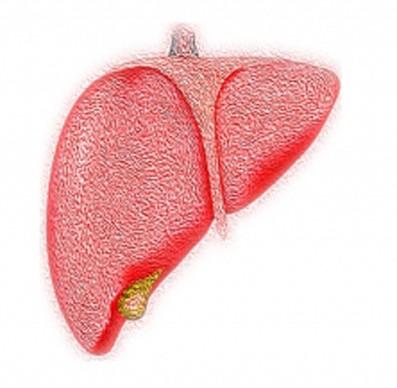
New Delhi, Liver disease has become a lifestyle disease in India, with the incidence of non-alcoholic and alcoholic fatty liver disease now much higher than hepatitis B virus as the main cause of liver disorders, said experts here ahead of the World Liver Day.
World liver day is observed on every April 19, to spread awareness about liver related disease.
The liver is the second largest and the most complex organ in the body, after the brain. It is a key player in our body's digestive system.
Fatty liver condition occurs when fat builds up in the liver that can cause liver inflammation, and damage your liver and create scarring. In severe cases, the scarring can lead to liver failure.
Among people who drink a lot of alcohol, the condition is known as alcoholic fatty liver disease (AFLD), while among those who don't drink a lot, it's metabolic dysfunction-associated fatty liver disease (MAFLD), earlier known as nonalcoholic fatty liver disease (NAFLD).
MAFLD is associated with increased all-cause and cardiovascular mortality.
Lifestyle changes involving obesity, sedentary lifestyle, food rich in sugar, calories and fat, and alcohol are the main reasons behind the poor liver health.
According to Dr Bhaskar Nandi, HOD - Liver & Digestive Sciences, Sarvodaya Hospital, Faridabad, till a few decades back, the most common cause of chronic liver disease in India was hepatitis B infection, that led to liver cirrhosis, liver cancer and liver failure.
"However, fatty liver, a metabolic disorder, now constitutes the largest burden of liver disease today due to changing lifestyle of people," he said.
Nandi added that as many as "80 per cent of people coming for an ultrasound checkup today are found to have fatty liver disease".
While about one in three of these will progress to chronic liver disease, liver cancer, cirrhosis, or end-stage liver disease, it is difficult to predict which ones will fall in that one-third bracket.
"India is seeing a significant rise in liver problems due to lifestyle changes. To fight liver disease, it is necessary to change our lifestyle - proper and healthy diet, exercise, avoid drinking alcohol or drink in moderation, increasing our screening," Dr. Pankaj Puri, from Fortis Escorts Liver and Digestive Diseases Institute, told IANS.
Often liver disease goes undiagnosed for years, as the initial stages generally have no symptoms and people feel well, and routine blood tests may not show liver abnormalities.
Globally, liver condition is seen in about 25 per cent or one in four adults that often goes undiagnosed, raising the risk for heart disease, according to a new American Heart Association scientific statement.
Nandi said that liver disease is fast becoming a public health problem for India. In 2015, acute and chronic liver diseases accounted for 2 million deaths worldwide, 18 per cent of whom were from India. The burden of liver disease has consistently been increasing in the country since then.
While hepatitis B vaccination is commonly given to children for immunisation, it is not popular among adults.
"Every year, more than 115,000 people die in India due to hepatitis B related complications. About 4 crore people in the country are carriers of this virus but remain asymptomatic and unaware of the risk they pose to others," Nandi said.
"Unlike in the West where main causes of transmission of hepatitis B virus include infected needles and sexual contact, in India, the spread is due to horizontal transmission by staying in proximity with an infected individual, like a family member who is asymptomatic," he noted.


.jpeg)

